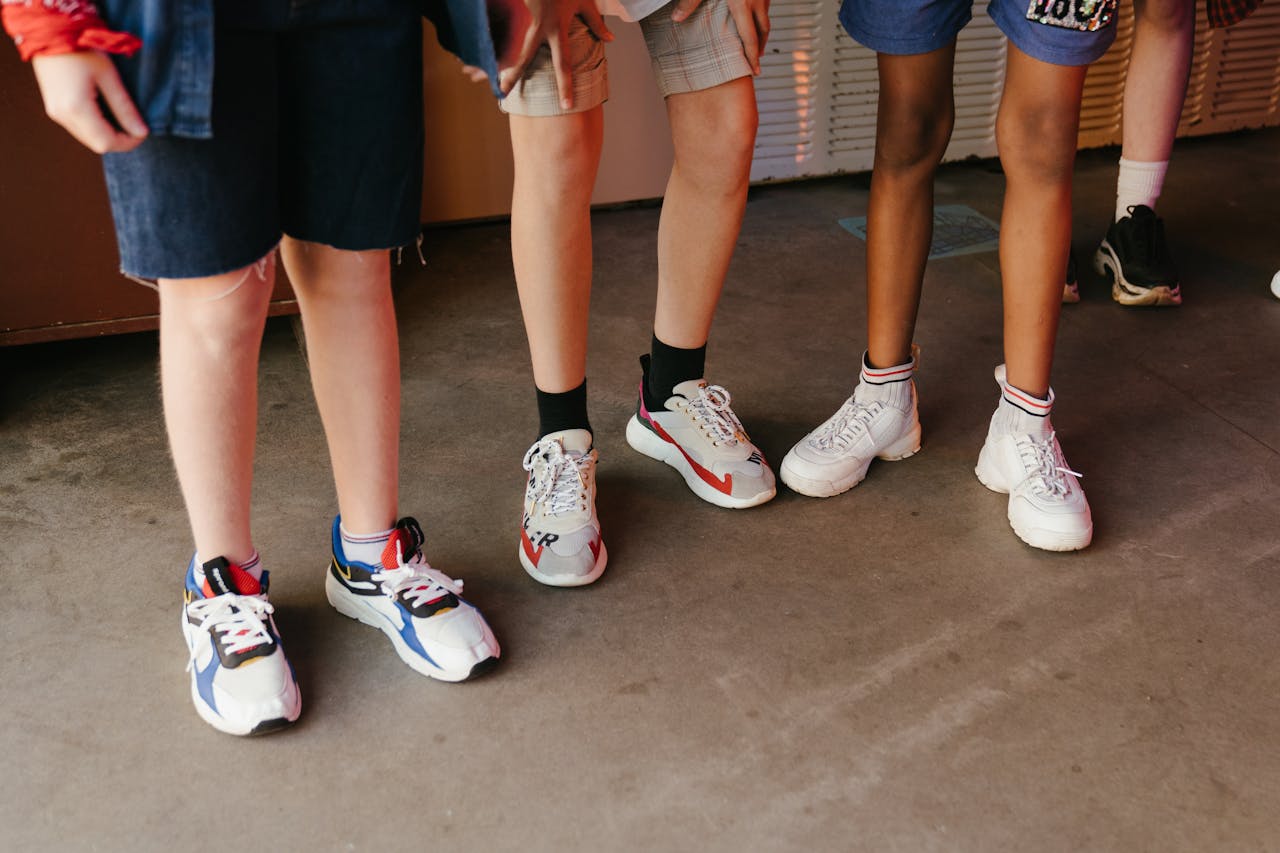
Gone are the tear-stained eyes of a parent driving away on the first day of kindergarten.
Your little one isn’t so little anymore—he’s an experienced student settling into the world of elementary school as a first grader. Just like he reminded you as he hopped out of the car—no help needed from mom or dad—and sprinted to catch up with friends and high-five teachers.
He’s getting so big . . . ahh, here come the tears after all.
Rest assured, parents, though he continues to grow in stature and wisdom, that first grader relies on you now more than ever. Here’s what he needs from you in the year ahead:
1. Your Attention
Your child’s classroom is full of kids all vying for coveted adult approval. Add a team sport and a sibling or two, and he’s basically spending all day noticing others notice his peers—a few of whom are (brace yourself) smarter, cuter, faster, or funnier.
At home, you can give him your eyes and ears before he ever asks. You might observe him at work or at play and say, “Oh, interesting. Tell me what’s going on here.”
When he does ask—with a “Look at me!” or an “Can I tell you about . . . ?”—take a deep breath before speaking. If you have even a minute, go ahead and give him a yes. Just 60 seconds of your attention right now means so much more than a promise of 10 minutes in the unknown future.
2. Your Trust
As parents, it’s easy to view our kids through the lens of our current age. We know that first grade is small potatoes—kids are bigger than they once were, but still unwise in the ways of the world. Unfortunately, this thinking puts our kids at a disadvantage. They’ll never catch up to our years of experience and we’ll always view them as little.
Unless . . .
Take a moment to reflect on what it felt like to be six or seven years old. You knew some stuff, didn’t you? Thought you could handle yourself, I imagine. Today’s first graders are no different. They want to be independent, to prove themselves capable, and to be in charge of their time (this is especially important for overscheduled kids).
Look for ways to give your child freedom, autonomy, and responsibility. Treat him like the big guy he is—able to help around the house, pour his own cereal, explore the great outdoors, and spend time developing his own interests and hobbies.
3. Your Tenderness
A few weeks ago, our oldest son (fresh out of first grade!) went to day camp for Cub Scouts. He came home one afternoon excited to tell us of the day’s adventures: shooting a bow and arrow and a BB gun, playing kickball, and meeting a real Army General.
“What a big guy,” I thought.
He then proceeded to pull all sorts of freebies out of his backpack—a lanyard, a hat, a wallet—all labeled with military insignia. He piled these items on the floor and said, with complete seriousness, “I guess I’m in the Army now.”
I stifled a laugh. Still little after all.
And still in need of my affection, patience, and understanding. He can read, yes, but I also read to him. We snuggle up on the couch. I smother him with kisses. I listen when he’s sad and offer big high-fives when he’s happy. And I know this matters because he often looks at me with those sincere eyes and says, “I love you, Mommy.”
4. Your Joy
First graders love to have fun, don’t they? We can ramp up the fun by creating opportunities for shared joy. Consider your home and your family, as well as your personal interests and what seems to spark something in your child.
Henry, our seven-year-old, could hold his head up as a newborn (no joke), stands when he’s eating (always), and once jumped for two-and-a-half-hours straight on an exercise trampoline (that’s a story for another day). All of this to say: the boy loves to move.
In first grade, my husband routinely surprised Henry at school pickup and took him out for an afternoon trail run—both of them coming home sweaty and happy as could be.
5. Your Wisdom
Your ever-observant first grader will likely start to notice that people come in all shapes, sizes, and colors. He may wonder why some families make different choices than his own. And he might start to ask questions about what’s really behind it all anyway.
Right now, you are the most revered expert in his life. Take advantage of this by responding to his questions in an age-appropriate way. That means not saying too much, but it also means saying enough. First graders are little sponges—they long to learn!
And be sure to ask questions of your own. Get curious about what your child knows about God, friendship, family, relationships, and more. Listen. Offer your thoughts. And, above all, let him know you are always up for a conversation.
6. Your Vulnerability
First graders are crazy competitive and, let’s just call it, a little bit cheaty. They’ll give a footrace their all, end just a smidge behind the other guy, and declare themselves the winner anyway. They’ll hear a younger sibling showing you a creation and rush in to say, “Look what I made! Whose is better? Mine, right?”
They wanna be on top—winning not losing, receiving compliments not criticism. Sounds good in theory but we all know that’s not how life works.
You can help balance the scales by talking about your own shortcomings and failures—as well as how persistence paved the way for something better or different.
You can also create opportunities for your first grader to learn and grow—board games at home where you do not let him win, a sport with the whole “no ‘I’ in team” mentality, and a continued commitment to focusing on giving what he needs most: your attention.




